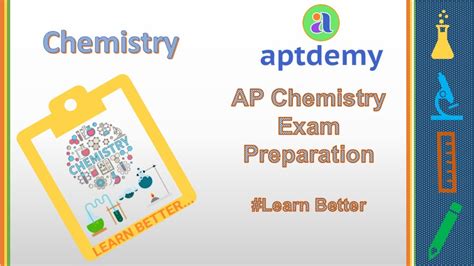The Advanced Placement (AP) Chemistry course is an intensive science option for high school students. It is designed to provide students with a comprehensive understanding of the fundamental principles of chemistry and to prepare them for college-level chemistry courses. The AP Chemistry syllabus is a detailed outline of the learning objectives, topics, and assessments that students will encounter in the course.

Course Overview
The AP Chemistry course is divided into nine units, each of which covers a specific aspect of chemistry. The units are:
- Unit 1: Atomic Structure and Properties
- Unit 2: Molecular and Ionic Compounds
- Unit 3: Intermolecular Forces and Properties
- Unit 4: Chemical Reactions
- Unit 5: Kinetics
- Unit 6: Thermodynamics
- Unit 7: Equilibrium
- Unit 8: Acids and Bases
- Unit 9: Applications of Chemistry
Each unit is further divided into sub-units, which focus on specific topics within the larger unit. For example, Unit 1: Atomic Structure and Properties includes sub-units on the structure of atoms, periodic trends, and atomic properties.
Learning Objectives
The AP Chemistry learning objectives are designed to assess students’ understanding of the fundamental principles of chemistry. These objectives include:
- Understanding the structure of matter and its properties
- Understanding the nature of chemical reactions and their rates
- Understanding the principles of equilibrium and thermodynamics
- Applying chemistry to real-world problems
Assessments
Students’ understanding of the AP Chemistry learning objectives is assessed through a variety of methods, including:
- Multiple-choice quizzes: These quizzes are given throughout the year to assess students’ understanding of the basic concepts covered in each unit.
- Free-response questions: These questions are given at the end of each unit and require students to demonstrate their ability to apply their knowledge to solve problems.
- Laboratory experiments: These experiments are designed to give students hands-on experience with chemical principles and to develop their laboratory skills.
- Final exam: The final exam is a comprehensive assessment of students’ understanding of the entire AP Chemistry curriculum.
Challenges and Benefits
The AP Chemistry course is a challenging but rewarding experience. Students who successfully complete the course will have a solid foundation in chemistry and will be well prepared for college-level chemistry courses.
Some of the challenges of the AP Chemistry course include:
- The course is fast-paced and covers a lot of material in a short period of time.
- The material is complex and requires a strong foundation in mathematics.
- The course requires a lot of time and effort outside of class.
Despite the challenges, there are many benefits to taking the AP Chemistry course. These benefits include:
- Students who successfully complete the course will have a strong foundation in chemistry and will be well prepared for college-level chemistry courses.
- The course helps students develop their critical thinking skills and their ability to solve problems.
- The course exposes students to the latest developments in chemistry and its applications.
- The course can help students develop their communication skills and their ability to work independently.
Tips for Success
There are a few things that students can do to improve their chances of success in the AP Chemistry course. These tips include:
- Start studying early: The AP Chemistry course is fast-paced, so it is important to start studying early. Begin reviewing the material as soon as you receive it.
- Be prepared for class: Attend all classes and take notes. Read the textbook before each class and review your notes afterwards.
- Do the homework: Homework assignments are essential for reinforcing the concepts that are covered in class. Make sure to complete all of your homework assignments on time.
- Ask for help: If you are struggling with a particular concept, don’t hesitate to ask your teacher for help. Your teacher is there to help you succeed.
- Take practice tests: Practice tests are a great way to assess your understanding of the material and to identify areas where you need to improve.
Preparing for the AP Exam
The AP Chemistry exam is a comprehensive assessment of students’ understanding of the entire AP Chemistry curriculum. The exam is three hours long and consists of two sections:
- Multiple-choice section: This section consists of 60 multiple-choice questions.
- Free-response section: This section consists of six free-response questions.
The multiple-choice section is worth 50% of the total exam score, and the free-response section is worth 50% of the total exam score.
There are a few things that students can do to prepare for the AP Chemistry exam. These tips include:
- Review the course syllabus: The course syllabus outlines the learning objectives, topics, and assessments that will be covered on the exam.
- Take practice tests: Practice tests are a great way to assess your understanding of the material and to identify areas where you need to improve.
- Review your notes: Your notes are a valuable resource for reviewing the material. Make sure to review your notes regularly, especially in the weeks leading up to the exam.
- Get a good night’s sleep: It is important to get a good night’s sleep before the exam. This will help you to stay focused and alert during the exam.
Conclusion
The AP Chemistry course is a challenging but rewarding experience. Students who successfully complete the course will have a strong foundation in chemistry and will be well prepared for college-level chemistry courses. With hard work and dedication, you can succeed in AP Chemistry.
